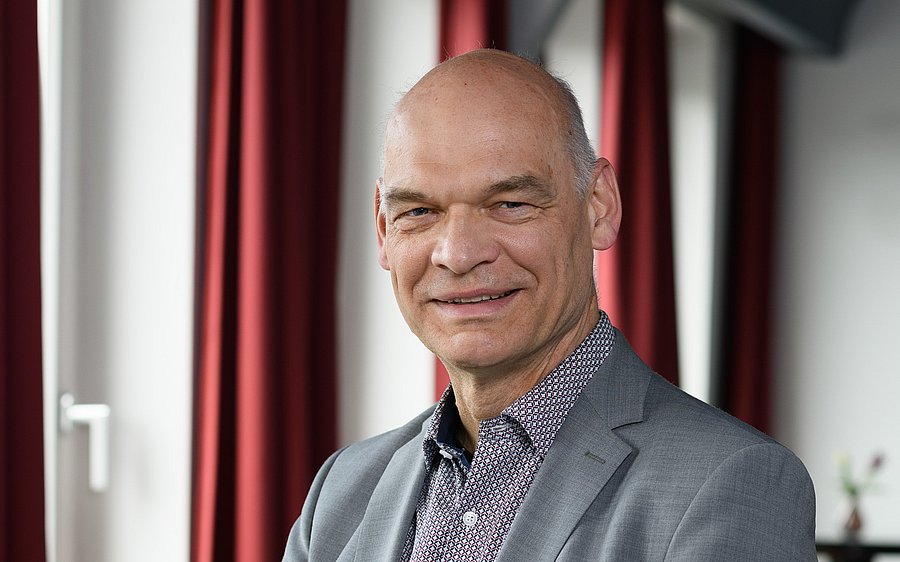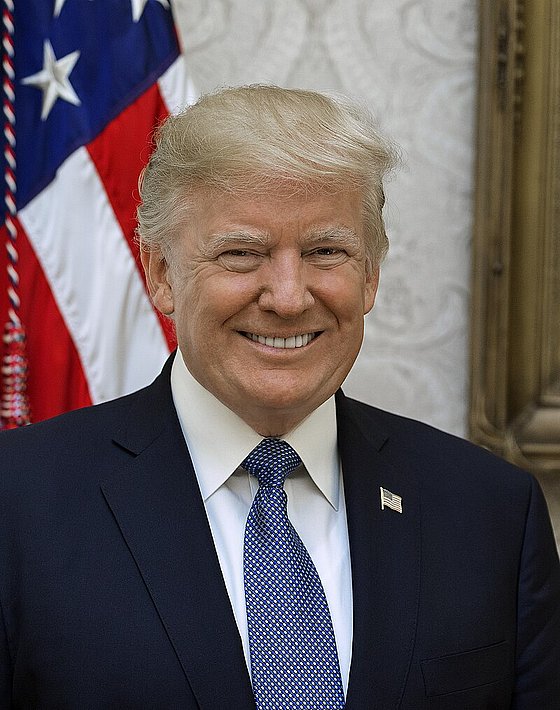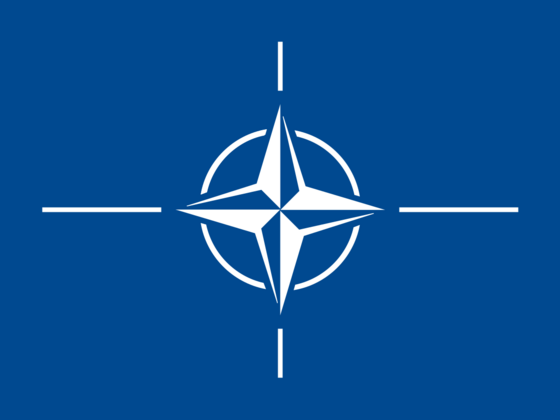
Presidential election in the USA and the consequences for Europe
Prof Dr Detlef Sack / Political Science
Photo: Mathias Kehren
Europe must ensure its own security
Political scientist Detlef Sack on the presidential election in the USA and the consequences for Europe
Donald Trump is back, and many experts believe he is stronger than ever. So what could a new presidency for the Republican mean for Germany and Europe? Prof Dr Detlef Sack, political scientist at the University of Wuppertal, says, "Trump is not a transatlantic. He doesn't really care about Europe and he doesn't like the weak."
'Meltdown of a president'
The first TV duel between incumbent President Jo Biden and his challenger Donald Trump has taken place. Millions of people watched the disastrous performance of the incumbent.The New York Times headlined 'Meltdown of a president'. "It's not unusual for candidates to actually fail in campaign talks - it happened to Obama too," says Detlef Sack, "and it doesn't necessarily have anything to do with age. In this case, however, it is the case that this specific duel fits in with other observations that suggest that the candidate in question, Jo Biden, is not at the height of his mental and physical powers." In view of the fact that leading heads of state such as Erdogan (70), XI (71), Putin (71) and challenger Trump (78) have already passed retirement age, Biden (81) joins the ranks of men who do not appear ready to relinquish power.
Are the world’s politicians ageing?
Global politics is not ageing, explains Sack, as there are also much younger candidates, Scholz (66) and Macron (46) are European examples, but those mentioned first play special roles in global politics. "We are currently dealing with the fact that a lot is happening in this triangle of the USA, China and Russia, which is important for Europe and Germany." Although the press also reported on the recent presidential election with the winner Massud Peseschkian (69) in Iran, this was of less interest in Germany. Erdogan, on the other hand, is particularly interesting in light of the fact that a relatively large number of people of Turkish origin live in Germany. "We have a very selective perception of different heads of government". It should always be noted that we are talking about people and presidents who come from different systems of government, i.e. from autocracies, dictatorships or majority democracies. The ageing of heads of state always has to do with the fact that we have demographically old societies that are slow to change.
The best talents
The United States has a population of around 335 million. In a country with so much talent, however, only a 78-year-old Republican and an 81-year-old Democrat remain as presidential candidates. This phenomenon is related to a selection process and the specific party system in the USA, in which both Trump and Biden proved to be the best talents at a certain point in time, explains the scientist. "Jo Biden was an excellent diplomat - I can't give an assessment of what that is like today - and he is an excellent fundraiser. This is very important in the US government system in order to be able to survive election and media campaigns. His talent is being able to deal with the party and the elites. This is crucial in the US electoral system in order to win decisive votes, especially in the so-called swing states (swing state refers to a state where the election result is hanging in the balance, editor's note)." However, Donald Trump is also a talent, regardless of any normative judgement, because he has managed to get certain sections of society to align themselves with him in public and in the political system over decades. "That is a talent. A talent for exercising power."

Wants a second term in office
Donald Trump
Photo: public domain
Into the highest office in the USA despite criminal conviction
Donald Trump is a convicted sex offender, he took government documents without authorisation, he is facing charges in connection with the storming of the US Capitol and he can be proven to have lied in almost all of his campaign speeches. Why can he still be elected to the highest office in the USA? "It's possible because those aren't prerequisites that are relevant to Trump's voters," explains Sack and continues, "Nobody would understand those statements on Fox News. You could ask Republicans this question at a barbecue, but they would just look at you blankly. That's the core of the conflict in the USA. There are two sides, Republicans and Democrats, who essentially no longer understand each other. They no longer perceive each other as political opponents, but as friends or enemies." Trump can generate votes, mobilise voters, he is visible and people can align themselves with him. "He is someone you have to be afraid of," says Sack, "i.e. I would be afraid of him as an internal party opponent. Within the party, rivals are never particularly gentle with each other. I would even say that Trump is also different within the party in terms of the severity of the dispute and that his following is one that wants to spread fear, even within the Republicans. Therefore, we have the principle of hope that the Republicans will win the elections with Trump. In addition, we have the fear motive. You have to be afraid of him, even if you are a moderate Republican, and there is hardly any room for retreat, no appreciation or honour for intra-party opponents."
European security at risk
In the 2024 financial year, the USA paid around USD 14.1 billion in aid to Ukraine as part of the Ukraine Security Assistance Initiative (USAI). This would change if the Republicans were to win the election. "Now I'm not a political scientist in international relations," says Sack restrictively, "but it’s clear that Trump will reduce or stop financial and military support for Ukraine relatively quickly. He will flank it with a few talks with Putin, which Putin will enter into, because then two men will meet who say they are the masters of world affairs. At the end of the day, both NATO and the EU will have to at least think about security for the next four years without committed US support." The Obama administration had already criticised the lack of willingness of European countries to provide for their own security, he explained. Defence and security policy has been treated rather subordinately in Europe over the last thirty years.
Can Europe keep Putin at bay without the USA?
Handelsblatt recently published an interview with Eldridge Colby, who could be a potential security envoy for Trump. He assumes that the Republicans will have to focus on preventing China from attacking Taiwan. If it came to war in the Pacific, Europe alone would have to keep the aggressor Putin at bay. However, can we do that? "I'm not a military analyst and can only refer to very general knowledge," says Sack cautiously, "but I would say: yes, we can, because Ukraine, even in times when arms supplies from the USA failed to materialise, was on the defensive but not overrun. Against the background that there is now a booming defence industry in Western Europe and against the background that Western Europe can borrow very well on the international financial market in order to spend a lot of money on armaments, we can do that. We are not talking about financially highly indebted weak states in an economically poor region of the world, but about an economically strong Europe. A country with 84 million inhabitants like Germany is the third strongest economy in the world. If India or Japan were to overtake it, its economic strength would still be clearly disproportionate to the size of its population. Therefore, yes! It will be very, very difficult and it will involve very unpleasant redistributions that are unacceptable to many." Europe has already begun to prepare for this case. These preparations include the ramp-up of the defence industry and the establishment of liquefied natural gas terminals as well as the expansion of renewable energies. "These are good prerequisites for reducing military vulnerability."

NATO flag
Photo: public domain
NATO withdrawal under Trump?
Unimaginable for many, experts consider the possibility of the USA leaving NATO when Donald Trump takes office to be realistic. "For years, I would have always answered this question in the negative," explains the expert, "but I'm now unsure. I believe that Donald Trump is also running to take revenge for what he sees as a "stolen" re-election. He will actually make institutional decisions in the US and internationally that he didn't make in his first term from 2016, simply to show that he can do it." This means, if Trump wins, he will certainly be more self-confident than before. So will Europe have to wrap up well? "Yes," says Sack promptly, "but we would also have to dress warmly in a second Biden term", because the US focus will be on the Pacific over the next 15 years.
No further security guarantees
Because the USA is shifting its security focus from the Atlantic to the Pacific in order to prevent China from taking military action in Taiwan, Sack believes that in the coming years the USA will definitely reduce security guarantees for Europe to varying degrees and at different speeds. "The second big question is economic policy. So is there still a protectionist economic policy?" Because Biden signed the Inflation Reduction Act in 2022, which is about driving domestic production. "We already have an economic policy here that hurts. I think the Biden administration might give Europe more time. In the medium term, Europe must look for a geopolitical model that does justice to its internal differences, its relative military weakness and economic strength. This is not an entirely new challenge. However, it is recognisably taking place under historically new circumstances, namely a bloc confrontation on our doorstep, an intensified confrontation between the US and China and a change in the party system in Europe, in which right-wing populist forces have established themselves."
Uwe Blass
Dr Detlef Sack is professor of political science, in particular democratic theory and government systems research at the University of Wuppertal.
